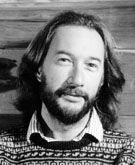| | Herbal Medicine: Post Partum | |
The first six weeks of the post partum period is referred to as the puerperium.
The first two to three days are spent bonding with the baby and waiting
for the true milk to come in. Milk usually comes in at about 72 hours after
the birth. Multiparous women will have significantly more intense after
pains or uterine contraction to facilitate involution of the uterus
to its pre-pregnant state. Early in the puerperium there is loss of blood
and later discharge from the vagina. Fever and foul discharge is indicative
of uterine infection. Generally if a woman does not nurse, she will menstruate
6 to 8 weeks following birth.
Nursing women menstruate anywhere from 6 weeks after birth to 2 years after
birth, however nursing is not an adequate method of birth control as most
women ovulate before they menstruate, and a woman can become pregnant before
her period returns. If the woman is lactating she will secrete prolactin,
which is actually stimulated by the sensation received by the nipple when
a baby nurses. Prolactin is a mild relaxant/depressant. At the same time
prolactin levels are rising, the high levels of estrogen and progesterone
maintained throughout the pregnancy have dropped abruptly. This may lead
to post-partum depression. Other factors contributing to such depression
are:
- Emotional let-down following the excitement and fear experienced during
pregnancy and labor and delivery.
- Discomforts of the puerperium.
- Fatigue due to loss of sleep.
- Anxiety over the ability to care for a dependent infant.
- Isolation.
Post partum depression is treated like PMS in terms of herbs, diet, supplementation,
and exercise. Greater emphasis can be placed on these herbs:
Artemisia vulgaris Hypericum perforatum
It is important to encourage women to go out and enjoy the company of other
adults. There are other physiologic signs of the decrease in estrogen and
progesterone which are considered normal. They include:
- Hair loss.
- Return of acne.
- Slowdown in nail growth.
- Decrease in libido.
- Thinning of the vaginal mucosa.
- Increased intensity of PMS.
Perineal Tears or Extensive Episiotomy
Usually these will heal faster if all significant tears are stitched. A
range of simple procedures can help in the alleviation of discomfort and
speed healing:
- Apply ice immediately after the repair is finished to decrease swelling.
- Sitz baths with infusion of vulnerary herbs.
- Aloe vera gel (best if extracted directly from the plant as commercial
types often contain irritating preservatives).
- Calendula, Symphytum, Hydrastis and Achillea
have all been used successfully as ointments or in sitz baths.
- Exposure to sunlight speeds healing.
- Decrease activity; severe tears heal faster with bed rest.
- Increase internal dosage of Vitamin E to 600mg/day.
After Pains or Recurrent Uterine Contractions
These get increasingly stronger with each successive pregnancy. They are
helpful in that the contraction is involuting the enlarged uterus. Nursing
will bring on or increase the intensity of these contractions. If necessary
use anti-spasmodics and uterine tonics such as:
Cimicifuga racemosa Dioscorea villosa Viburnum prunifolium
Viburnum opulus
Lactation : to stimulate
Galactogogues encouraging the beginning of milk production as well as increasing
total volume. Important examples are :
Galega officinalis Foeniculum vulgare Cnicus benedictus Borago officinalis
- Helpful foods include apricots, asparagus, green beans, carrots, sweet
potatoes, parsley, all leafy greens and grains.
- Drink plenty of fluid.
- Rest: lack of sleep produces milk shortages.
- Stimulate the nipples by allowing the baby to suck often.
Lactation : to stop
A number of herbal approaches have been used to reduce milk flow, thus forcing
the child to stop breast feeding. There are no good reasons to stop breast
feeding at a certain time. Cultural ideas are not much to go on as it was
not all that long ago that women were discouraged from breast feeding. Salvia
officinalis does reduce milk flow.
Mastitis
This usually occurs when the breasts become very engorged, often the result
of a missed feeding. If a baby who usually wakes up two to three times at
night to nurse suddenly sleeps through the night engorgement will occur.
When milk is left pooled in the sacs, particularly if the breast has been
incompletely emptied, and a residual amount is left over time, it becomes
a breeding ground for bacteria entering through the nipple and infection
will occur. Mastitis will also occur in the immuno-compromised woman, or
in the presence of increased stress. The following suggestion will help
generally:
- vulnerary and anti-microbial herbs applied externally such as Calendula.
- relaxed, unhurried, thorough nursing.
- cleanliness around the nipple.
- adequate fluid intake for flushing the system
- rest
- adequate diet with decrease in fatty and refined foods.
 | Whilst working in conservation and lecturing in ecology and the eco-crisis for the University of Wales, David Hoffman became convinced that to heal the world, to embrace planetary wholeness and responsibility for it......more |
|
|
Popular Related Articles/Areas
Popular & Related Products
Popular & Featured Events
Dimensions of Wellness
|
|